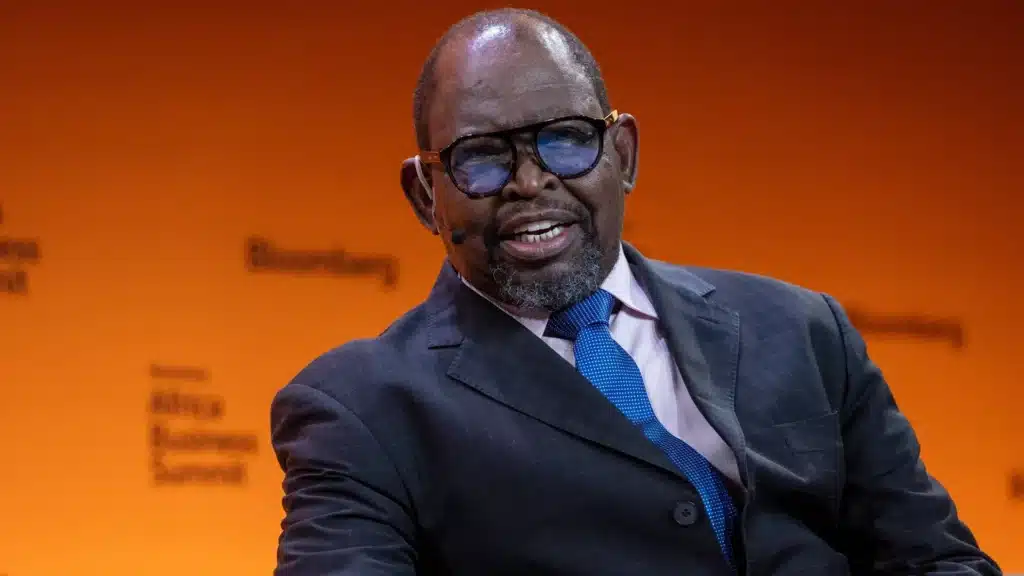
Newsletter Subscribe
Enter your email address below and subscribe to our newsletter

Enter your email address below and subscribe to our newsletter

Enoch Godongwana breaks down South Africa’s complex fiscal future, highlighting the urgent need for reform, efficiency, and disciplined leadership to restore long-term economic stability.
South Africa’s Finance Minister, Enoch Godongwana, remains one of the most pivotal figures steering the country through its most challenging fiscal period in decades.
His recent remarks on South Africa’s economic trajectory (delivered in interviews and policy briefings) paint a sober picture of a nation caught between fiscal discipline, political pressure, and structural decline. Yet, beneath the turbulence, Godongwana continues to push for a pragmatic, market-calming approach that prioritizes debt control, revenue strengthening, and institutional reform.
For investors, business leaders, and policymakers, his perspective offers clarity on the direction of South Africa’s fiscal machinery. His outlook underscores the contest between responsible budgeting and a political environment that often leans toward populist spending solutions.
In this environment, Godongwana represents a technocratic anchor—focused less on ideology and more on financial sustainability.
Godongwana has repeatedly emphasised South Africa’s precarious fiscal position—one defined by high debt-service costs, stagnant growth, and rising social spending demands. Approximately 20 cents of every rand collected now goes directly to servicing debt, a trend he labels as unsustainable.
The minister has made it clear that South Africa cannot borrow its way out of economic stagnation. Instead, he advocates for expenditure restraint, improved efficiency, and a firm stance against political calls for unfunded programs.
Eskom and Transnet remain the biggest threats to South Africa’s fiscal stability. Their operational failures have brought measurable economic drag: cutting growth, reducing trade efficiency, and driving investor frustration.
Godongwana has insisted that bailouts without reform are no longer viable. Instead, he argues for deeper restructuring, private participation, and governance improvements.

South Africa’s tax base continues to narrow as emigration rises and businesses struggle under regulatory pressure and unstable electricity supply. Godongwana stresses the need for policies that retain high-income earners, support SMEs, and attract private investment, rather than policies that drive them away.
He also highlights efficiency improvements at SARS (South African Revenue Service) as critical to boosting revenue without aggressive tax hikes.
Godongwana is blunt about the reality: without structural reforms, South Africa cannot grow its way out of crisis.
Key focus areas include:
The minister’s stance aligns closely with recommendations from global financial institutions and domestic business groups.
South Africa’s coalition politics and populist factions continue to pressure the Treasury to expand spending, loosen fiscal rules, and accelerate social programmes. Godongwana’s challenge is navigating these demands while safeguarding budgetary credibility.
Despite these pressures, he remains one of the strongest defenders of fiscal discipline, often signalling to markets that Treasury will not be captured by political short-termism.
Enoch Godongwana’s vision for South Africa is not glamorous; it is grounded, disciplined, and cautious. His message is clear: the country must tighten, reform, and rebuild before it can grow.
Businesses and investors looking to understand South Africa’s medium-term direction will find his comments instructive. They reveal a Treasury aware of the stakes, committed to discipline, and ready to push through unpopular but necessary reforms.
South Africa’s fiscal future remains challenging, but under Godongwana’s stewardship, it is at least guided by realism rather than rhetoric.